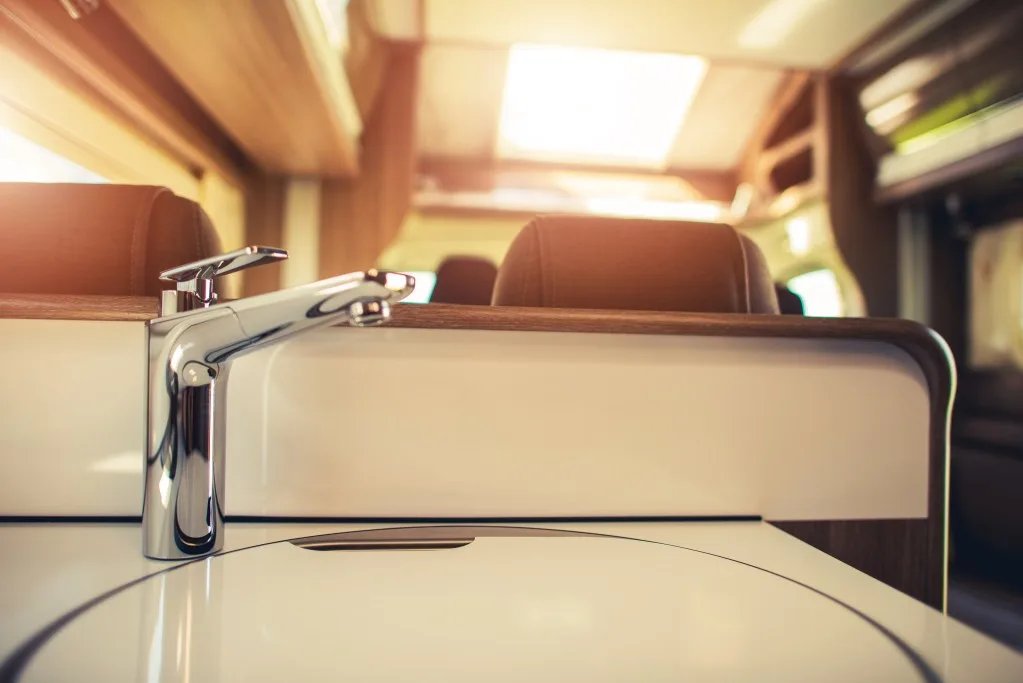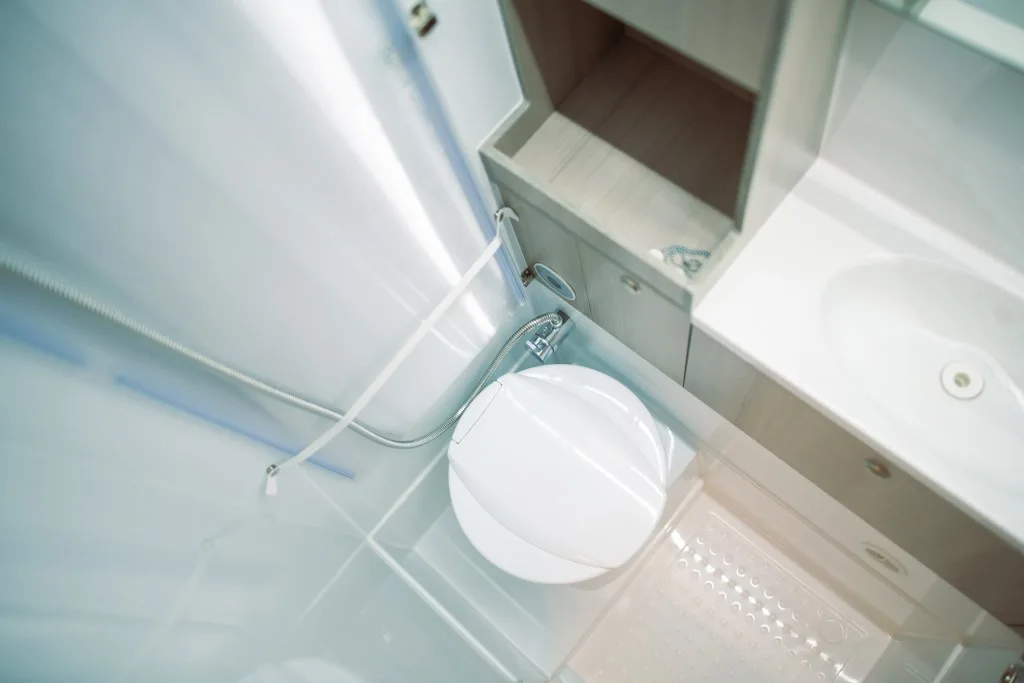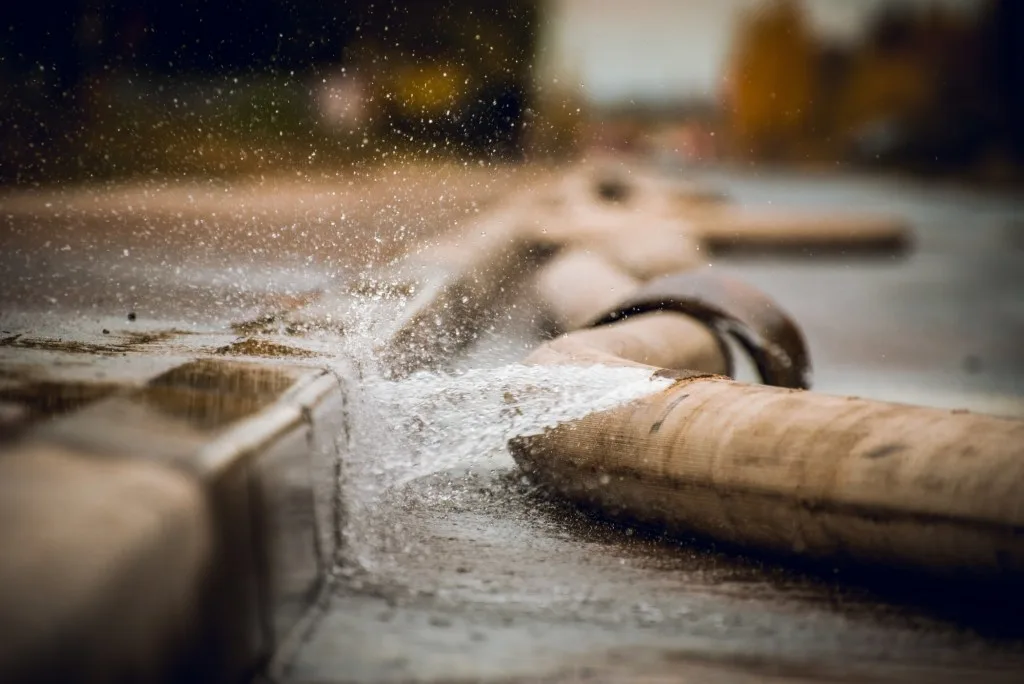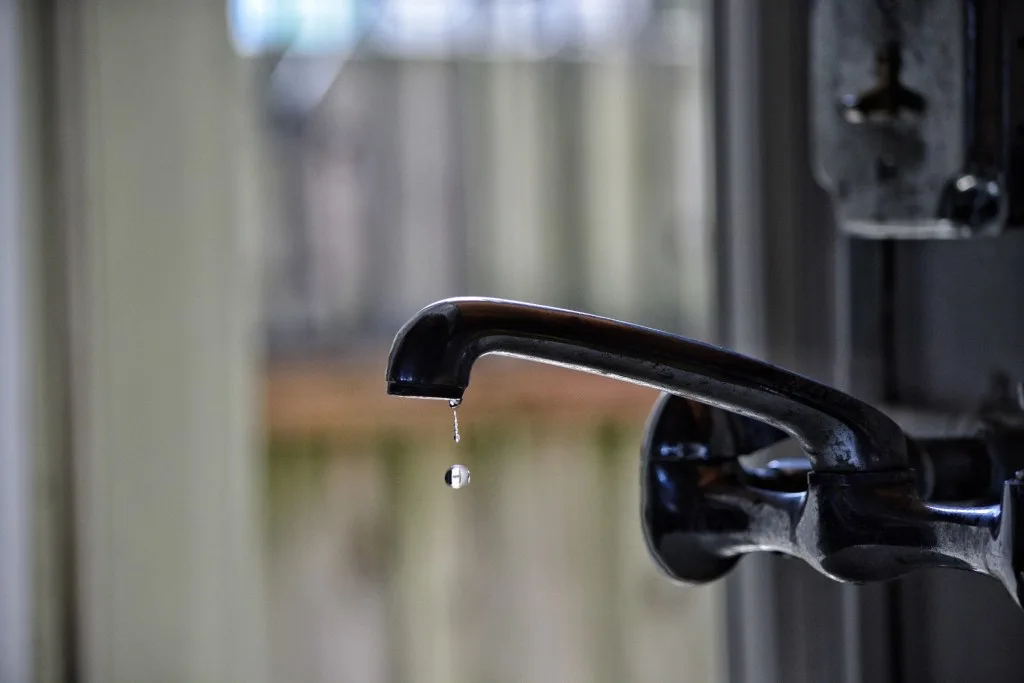Why Does My RV Water Pump Randomly Turn On?
As you lie in bed at the end of a long day enjoying the quiet, you don’t want to hear the sound of your RV water pump randomly cycling.
RV water pumps cycle when they lose pressure in the water lines. This could be normal or a potential sign of a leak.
Today we want to help you have a better idea if you should be worried or not the next time your RV water pump randomly turns on.
Let’s get started!
About Your RV Water Pump
An RV water pump will pump water from your RV’s freshwater tank to every faucet and toilet in your RV. A water pump in your RV comes in handy when not connected to a water source. It can allow you to camp in remote locations without water hookups.
Some RVs even utilize the water pump for sanitization and winterizing. By adjusting a few knobs or setting to the plumbing system, the pump will siphon cleaning solution or RV antifreeze through your system. Using this method, you’ll have the assurance that your plumbing system is clean or safe from freezing temperatures.
Pro Tip: When cold weather is coming it is crucial to winterize your RV. Read more to find out How To Winterize Your RV.

5 Troubleshooting Tips for When Your RV Water Pump Randomly Turns On
If you hear the growling sound of your RV water pump, you can do a handful of things to troubleshoot the issue. Let’s take a look at these tips before you go calling a mobile tech to come to check out your system.
First: How Often Is Your RV Water Pump Running?
You want to take note of how often the pump runs. If there’s an issue, it will likely be somewhat consistent. Note the time every time you hear your pump run. If it is rarely occurring, there’s likely no issue.
However, if there’s consistency or the pump begins to run more frequently, you’ll want to do some investigating and potentially start looking up mobile techs in the area.

1: Check All Faucets
The first thing you should do is check all of the faucets connected to your RV water system. If you don’t close the tap all the way, it can drip, and the water pump will cycle through to keep pressure in the pipes.
You may not see the drip occur, so you can plug the drain and wait an hour or two to see if any water collects in the sink. You can also use a towel to thoroughly dry the sink bowl and check for any water remnants or other signs of a drip later.
2: Check Your Toilet and Outdoor Shower, Too
One of the most challenging leaks to locate is a toilet leak. A toilet with a leaking seal or faulty foot pedal can cause your water pump to cycle randomly.
You can rule this out by flushing the toilet and confirm that the toilet stops releasing water. You’ll want to look for any ripples in the water, indicating additional water is entering the bowl.
Don’t forget about checking the lesser-used faucets like an outdoor shower or outdoor kitchen sink. You may have left them on, causing them to release pressure now and then.
Verify that the faucet is off and that your issue is not the result of a faulty sprayer or other minor issues with the outdoor shower connection.

3: Check Water Heater Plug for Leaks
A leaking water heater plug is relatively common, especially at the start of camping season. Many RVers get excited about camping and may not tighten their water heater plug completely. A slow drip at the RV water heater will result in your water pump cycling occasionally.
Locate your water heater and inspect the outside ground for any signs of a leak. You may notice a drip from the metal cage protecting the essential components for its electronics.
If you discover no leak, make sure you carefully open the cage to look inside for any signs of a leak. You may need to empty the water heater, remove the plug, and apply Teflon tape to the threads to help ensure a quality seal for your water heater plug.
4: Check Plumbing for Leaks
Locate as many of your plumbing lines as possible and inspect each of them. If it leaks, you’ll likely find a puddle of water.
If your RV has sat in cold temperatures and without proper winterization, you may have a busted line in your plumbing system, which would result in water leaking into hidden parts of your RV.

5: Check Fittings for Leaks
The fittings in your plumbing lines can leak too. Your plumbing system has many fitting connections that are all susceptible to failures, whether from poor manufacturing or normal wear and tear.
Fittings can also leak if you over-pressurize your plumbing system. This can result from not using a water pressure regulator when connecting your RV to a water connection at a campground, insufficient winterizing, or a simple failure.
If a fitting leaks, your water pump will likely run more consistently. You’ll want to ensure that you inspect all of the fittings in your plumbing system. This includes the connections for each faucet and toilet.
Driving down a bumpy road for an extended time can cause a fitting to come loose. Look for any signs of a leak around fittings, and if you discover one, do your best to tighten the connection. However, don’t over-tighten them as plastic fittings break easily.

What to Do if You Find a Leak
If you discover your RV leaks, don’t delay a repair. Turn off your water pump to avoid any further damage to your RV, and do your very best to clean up any puddles or water spots.
Don’t simply stop investigating because you found a leak. Continue to do a thorough check of your entire RV plumbing system to avoid any potential issues.
Make a list of supplies that you’ll need to fix the leak. You may need new PEX pipes, Teflon tape, or a few new tools to complete the repair. Having a thought-through plan and a list can help avoid multiple trips to the hardware store to complete the job.
If the leak continues after you’ve tried to fix it, you may need to contact a professional. You can find many qualified mobile RV technicians that can help assist you with many types of repairs. Don’t be too proud to reach out to a professional. A sub-par repair can be more costly.
Pro Tip: On the hunt for a new water pump? These are which RV Water Pumps are Decent, Better & The Best.
Leaks Can Cause More Damage
An RV water pump that consistently cycles when not using water is never a good sign. It’s also not a repair that will fix itself.
Procrastinating on an RV water pump repair will likely result in more extensive damage to your RV, which can cost a lot more. A leak can allow mold to grow in your RV, which can be harmful to your health and difficult to remove.
Make sure to promptly address the issue so you can get back to enjoying your RV. Have you ever had your water pump cycle randomly to indicate a bigger problem?
We’ll Help You Find the Best Free Camping in the USA
You should give it a try!
As a matter of fact, these free campsites are yours to enjoy. Every time you pay federal taxes, you’re contributing to these lands.
Become a FREE CAMPING INSIDER and join the 100,000 campers who love to score the best site!
We’ll send you the 50 Best Free Campsites in the USA (one per state). Access the list by submitting your email below:
In your article on the water pump randomly running, you missed one easy reason for this. Do you have an icemaker? We have an automatic ice maker in our refrigerator/freezer that will randomly cycle the water pump briefly on/off about 3-times in order to fill it. At first, it threw me off and I was concerned about a leak until I realized the icemaker was making new ice. Yay!!!